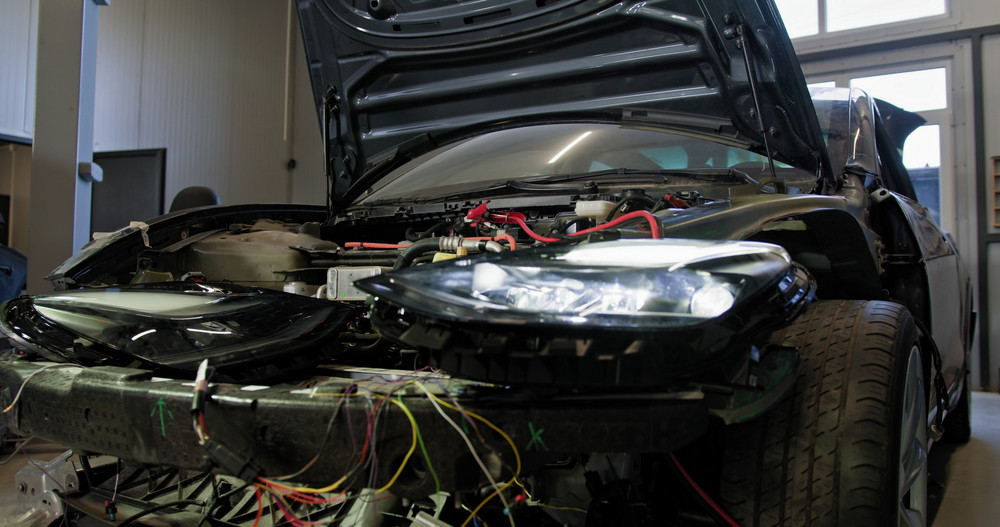Highlights:
Match Battery Type to Device: Use alkaline for low-drain devices, lithium for high-drain or extreme conditions, and rechargeable (NiMH or Li-ion) for frequently used electronics.
Prioritize Trusted Brands: Duracell, Energizer, Panasonic, Varta, and other reputable companies ensure consistent performance and reliability.
Check Specifications Carefully: Consider voltage, capacity (mAh/Ah), size, and temperature ratings to ensure proper device compatibility.
Balance Cost and Longevity: Higher-quality or rechargeable batteries may cost more upfront but save money over time through longer lifespan and fewer replacements.
Emphasize Environmental Responsibility: Rechargeables, recycling programs, and brands with sustainable practices reduce waste and environmental impact.
Look for Support and Warranty: Reliable companies provide clear warranties, responsive customer service, and guides to help with proper battery selection and maintenance.
Choosing the right battery can feel like a maze with endless options and confusing labels. You want something that lasts, works well, and won't leave you stranded at the worst moment. This guide breaks down what reliable battery companies offer and how to make smart battery selections for your devices. By the end, you'll have clear battery recommendations to find the best batteries that fit your needs without the guesswork.
Understanding Battery Types and Their Applications
Common Battery Types for Everyday Use
The first step in proper battery selection is understanding the different types available. Alkaline batteries remain popular for everyday devices like remote controls and clocks, offering good value and shelf life. Lithium batteries cost more but last longer and perform better in extreme temperatures, making them ideal for cameras and medical devices. Rechargeable options include Nickel-Metal Hydride (NiMH) batteries, which have improved significantly and now hold their charge for months when not in use. For automotive and larger applications, lead-acid batteries continue to be standard, while lithium-ion dominates the rechargeable market for electronics due to its high energy density and lack of "memory effect" that plagued older rechargeable types.
Specialty Batteries for Specific Needs
Some applications require specialized battery types. Button cells power watches and small electronics, while high-capacity deep cycle batteries suit boats and RVs. Solar storage systems typically use specific lead-acid or lithium variants designed for regular charging and discharging cycles. Hearing aids and medical devices often need zinc-air batteries that activate when exposed to air. Understanding these distinctions helps narrow your search when looking for reliable battery companies that specialize in your specific needs.
What Makes a Battery Company Reliable?
Manufacturing Standards and Quality Control
Reliable battery companies maintain strict quality control protocols throughout production. They test batteries for capacity, voltage stability, and performance under various conditions. Many follow international standards like IEC or ANSI specifications, ensuring consistency across products. Quality manufacturers also implement safety features to prevent leakage, overheating, or other failures. These companies typically operate advanced facilities with automated testing equipment and trained technicians who monitor production. Their batteries undergo multiple inspections before reaching consumers, resulting in fewer defects and longer-lasting products.
Warranty and Customer Support
The warranty offered by battery manufacturers often reflects their confidence in their products. Top reliable battery companies stand behind their items with clear warranty terms, sometimes guaranteeing performance for specific periods or cycles. Strong customer support represents another hallmark of dependable companies, with accessible representatives who can answer technical questions and address problems promptly. Many established manufacturers maintain detailed knowledge bases and troubleshooting guides on their websites, helping customers select and maintain batteries properly. When comparing battery recommendations, consider not just the initial purchase price but the long-term value provided through warranty coverage and support options.
How to Select the Right Battery for Your Needs
Matching Battery Specifications to Device Requirements
When making a battery selection, always check your device's manual for specific requirements. Voltage ratings must match exactly - using a 1.5V battery when a device needs 1.2V can cause performance issues or damage. Capacity, measured in milliampere-hours (mAh) for small batteries or ampere-hours (Ah) for larger ones, determines run time. Devices with high power demands need batteries with higher capacity ratings. Physical dimensions matter too - batteries come in standardized sizes (AA, AAA, C, D, etc.), but some devices need specific shapes or terminal configurations. Temperature rating becomes important for batteries used outdoors or in extreme environments, as cold conditions particularly affect performance.
Considering Environmental Impact and Recycling Options
Environmentally conscious consumers should consider the ecological footprint when evaluating battery options. Rechargeable batteries reduce waste significantly compared to single-use alternatives, despite higher initial costs. Some reliable battery companies use recycled materials in production or offer take-back programs for spent batteries. When disposing of batteries, most types require special handling - particularly those containing heavy metals or lithium. Many communities offer battery recycling programs, and retail chains often provide collection points. Choosing companies that participate in responsible end-of-life programs helps reduce environmental impact while supporting sustainable practices in the industry.
Making Cost-Effective Battery Choices
Balancing Price and Performance
Price often influences battery purchases, but the cheapest option rarely provides the best value. Low-cost batteries typically offer lower capacity and shorter lifespans than premium alternatives. For devices used frequently, investing in higher-quality batteries usually saves money long-term through fewer replacements. Rechargeable batteries represent significant savings for high-drain devices like digital cameras or game controllers, typically paying for themselves after 5-10 charging cycles compared to disposables. For rarely used or low-drain devices like wall clocks, basic alkaline batteries might prove most economical. When comparing prices, calculate the cost per hour of use rather than just the purchase price to determine true value among battery recommendations.
Recognized Battery Brands and Their Strengths
When navigating the battery market, it helps to know which brands consistently deliver reliability, performance, and innovation. Companies like Duracell, Energizer, Panasonic, and Varta have built strong reputations over decades for producing batteries that maintain voltage, resist leakage, and perform well across a variety of devices. Duracell, for example, emphasizes long-lasting alkaline and specialty batteries, while Energizer focuses on high-drain and lithium options for demanding electronics. Panasonic excels in rechargeable NiMH batteries and lithium-ion cells used in cameras and portable devices. Varta is recognized for both consumer and industrial battery solutions, including button cells and automotive batteries.
Smaller niche brands often cater to specialized needs, such as hearing aids, medical devices, or renewable energy storage. Companies like Rayovac, Exide, and Trojan provide solutions for automotive, deep-cycle, and solar applications. Choosing a battery from a reputable manufacturer ensures consistent quality, thorough testing, and adherence to safety standards.
Additionally, many top battery companies offer clear labeling, detailed specifications, and guides to help consumers select the right battery type for their device. By selecting brands with proven track records and comprehensive product lines, you minimize the risk of premature failure, maximize device performance, and gain peace of mind knowing your electronics are powered reliably.
Conclusion
Selecting the right batteries involves balancing several factors: device requirements, expected performance, cost considerations, and environmental impact. The best batteries for your needs depend on specific applications - from everyday household items to specialized equipment. Reliable battery companies distinguish themselves through consistent quality, appropriate warranties, and responsive customer service. By understanding battery types, reading specifications carefully, and considering long-term value rather than just initial price, consumers can make informed choices. Remember that proper storage and handling extend battery life, while appropriate recycling protects the environment. With these principles in mind, finding dependable power sources becomes much simpler, ensuring your devices work reliably when you need them most.
Know your battery types: Match alkaline, lithium, NiMH, or specialized batteries to your specific device needs
Look for quality indicators: Strong warranties, clear specifications, and good customer support signal reliable battery companies
Consider total cost: Factor in lifespan and performance when comparing prices
Think sustainably: Choose rechargeable options when practical and recycle all batteries properly
For more information about battery options for vehicles and larger applications, check out resources from Jefferson Battery or AutoZone's battery section for specific automotive applications.




